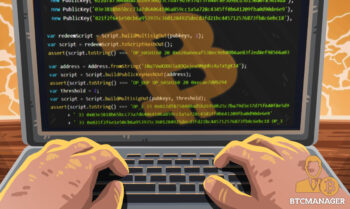2019-3-12 18:33 |
The duties of a journalists is simple: educate the public about events, issues and developments that directly or indirectly affect their lives. Part of their daily routine involves conducting interviews, sieving through private or private records and visiting scenes for primary data. It is this information gathering, especially if they take on powerful interests, that places them at risk.
By Dec 2018, a worrying statistic was revealed. 34 journalists had been killed in the cause of their duties. Part of those killings was as a retaliation for their exposes or were accidents. But it is not the killings alone, last year a record 251 journalists were jailed.
Read:Report Links Members of CoinBase’s Latest Acquisition, Neutrino, with the Hacking Team
Because of this, UNESCO, a wing of the UN mandated with the protection of press freedom and freedom of expression, did condemn the killing and jailing of journalists. As a show of solidarity, they even had a page dedicated to these fallen soldiers who paid a huge price for their dedication towards peace, freedom of expression and democracy. Technology is where journalists are turning to and after all, without press exposing rampant corruption, without local watch dogs revealing atrocities it will be hard for governments or companies to be held accountable. To be effective in their protection UNESCO:
“collaborate in the work of advancing the mutual knowledge and understanding of peoples, through all means of mass communication and to that end recommend such international agreements as may be necessary to promote the free flow of ideas by word and image”
It is because of these constant dangers and deliberate suffocation of press freedom and most importantly freedom of expression that the Human Rights Foundation wants to help journalists learn and use Bitcoin for their safety and privacy. Bitcoin as a new-age coin is more private that traditional payment channels like PayPal which can be switched off anytime.
Also Read:Whether You Bought Bitcoin (BTC) at $1,800 or $3,000 Won’t Matter in 5 Years: Crypto Analyst
Completely digital, Bitcoin as a protocol is under constant improvement and changes can be made to increase transparency but also boost privacy—already Bitcoin is pseudonymous, meaning it is not completely anonymous and in a way, can be tracked by blockchain intelligence platforms as Chainalysis and even CoinBase’s Neutrinos. All the same, they are a better option that can no doubt help journalist execute their work irrespective of location.Caution is recommended:
“Activists or journalists who are considering using Bitcoin to escape the prying eyes of an authoritarian government or a corporation need to understand what type of traces they leave when they’re using it and whether the privacy nature of bitcoin is sufficient for their needs. However, achieving this understanding requires some amount of effort.”
Work is underway and as development of privacy-oriented features as Taproot, Schorr Signatures and Scriptless scripts are drummed up, the Bitcoin protocol will be truly private and therefore safer for everyone, including journalists. In the meantime—and aware that protocol changes are always contentious, it’s upon the end-user to take a pro-active stance and employ different tools that makes it harder for government agents to track their crypto transactions both offline and on-chain.
The post Bitcoin Can Be a Safe Haven for Journalists, Human Rights Foundation appeared first on Ethereum World News.
origin »Bitcoin price in Telegram @btc_price_every_hour
Bitcoin Private (BTCP) íà Currencies.ru
|
|


